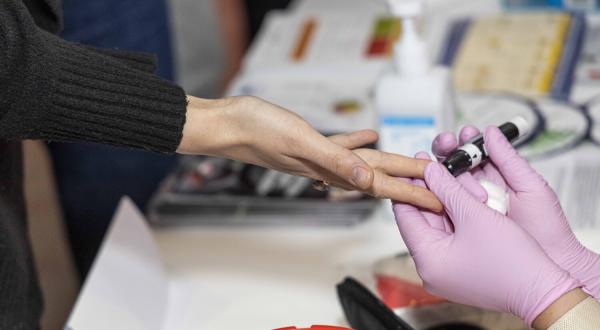Civility Saves Lives: the Importance of Behaviour in Medicine and Relationships
Anger, intolerance, self-righteousness, and rudeness have long been sadly prevalent in people’s attitude towards one another, and not just in Latvia. Researchers have conducted several studies on the consequences of rude behaviour; niceness and civility are also important in medicine. The conclusion is that civility improves medical personnel’s work, enhances their performance, improves treatment outcomes, and reduces the number of medical errors. In other words, civility saves lives!
The eighth episode of the RSU Health Express podcast (available only in Latvian – ed.) brings together two experts: Ieva Ruža, an endocrinologist who treats patients at the Riga East Clinical University Hospital and a lecturer at the Department of Internal Diseases, and Ilze Mileiko, a graduate from the RSU Social Anthropology master's programme. Both experts are looking for an answer to whether niceness and civility could save Christmas this year.
Several years ago, researchers from Harvard University focused on studying the impact that civility and rudeness had on people.
They found that in 80% of cases people who experienced uncivility took it personally. In 61% of cases their cognitive abilities decreased, 38% experienced a decrease in the quality of work, whereas a quarter passed the negativity on to others.
Rude behaviour, as it turned out, affects not only those who are the direct recipients, but also those around.
Endocrinologist Ieva Ruža: ‘Surgeons were the first to be studied. The researchers looked at how their behaviour affected surgery outcomes and anaesthesiologists’ and nurses’ ability to perform during surgery. One of the ambassadors of the Civility Saves Lives movement is my British colleague Chris Turner. He has found evidence of the importance of both doctors’ interpersonal relationships and their relationship to patients in achieving good treatment outcomes.
Doctors making mistakes is the price of rudeness.
When someone yells at us, we freeze up both physically and mentally, because we don’t know how to react. In medicine, the brain’s protective response can be fatal, as cognitive ability decreases by 61%!’
The experts also speak about why we often face uncivil and unkind behaviour in Latvia and why people abroad seem more sympathetic and polite. ‘I felt the difference while living in Canada. People were not suspicious of me,’ Mileiko says about her experience. ‘Meeting me people saw me first and foremost as a good and trustworthy person, whereas in Latvia it feels like I have to prove that I am worthy of friendship and kindness.
In an evolutionary sense it has been useful for us as a species to perceive others amicably because it increased the chances of survival. But why has this mechanism not been prevalent in Latvia and why we are so suspicious of one another?
The answer lies in our history.’
Dr. Ruža gives some simple advice on how to train the ability to control one’s anger and not to vent on others. ‘First of all, learn to recognise your emotions. Secondly, use the ancient but extremely powerful neuroscientific method of breathing deeply and counting to ten – this reactivates the frontal love and dispels the impulse to react with anger and holds you back from the urge to yell.
Wait a while, and only when these strong emotions have subsided, can you start to express your dissatisfaction without offending anyone. Third, put on “fake smile”. Neuroscience has proven that the brain perceives it as real, and after a short while it will create inner well-being.
And last but not least, practice gratitude every day. It develops civility in ourselves and the ability to pass it forward. We can make our daily lives more stable and peaceful by very simple methods, with a smile and a kind word.’
Related news
 RSU Health Day attracts many first-time donors and large number of student research groupsFor RSU Employees, For Students
RSU Health Day attracts many first-time donors and large number of student research groupsFor RSU Employees, For Students


